- Home
- Martin Cruz Smith
The Girl From Venice Page 23
The Girl From Venice Read online
Page 23
“Cenzo!” Giulia called.
“I’m okay! Stay down!” Cenzo yelled back.
“Get the girl!” Otto ordered.
Cenzo crawled in the direction of her voice. As long as they were in the dark, they were relatively safe, but the night was fading fast and light was spreading. Giorgio had not spoken or fired his gun and Cenzo wondered if he had been hit.
Otto called, “Giulia, Giulia, where the hell art thou?”
Cenzo heard a triumphant “I got her!” from Farina and turned around to see Giulia staring at Otto as if she had seen a ghost or a ghost had seen her.
“DaCosta,” she said.
“You can call me Otto.”
“I can call you whatever I want. Your name was DaCosta when you murdered my parents.”
“Frankly, my dear, no one gives a damn.”
She tried to slap him, but Otto caught her hand.
“That’s all you can say? Did you watch them die?”
“No, but there’s a sameness in death. I can assure you that they were dead before they hit the ground.”
“Shut up, Otto,” Cenzo said.
“Brave talk for a man without a gun,” said Otto. He grabbed Giulia and twisted her arm behind her back. “So if there is any gold, lead us to it. If not, I can shoot her now and they’ll find your bones with hers a year hence and declare you—the Germans have a word for it—kaput.”
“Not yet,” Giorgio said. He limped into view, bloodstains covering one sleeve.
“What happened to you?” Farina asked.
“What happened?” Giorgio said. “You almost killed me with that fucking cannon, you idiot!”
Farina protested, “It was an accident.”
“Are you in any condition to fly a plane?” asked Otto. “I’ve been holding your brother Cenzo in reserve if you can’t. In compensation for your pain and suffering, we’ll give you one of his bars of gold. Or we can flip for it.”
“I have a favorite coin,” said Giorgio.
“Of course you do,” Cenzo said. “And a lucky pack of cards or lucky dice. The problem is there’s no gold.”
“What do you mean?” Farina asked.
“There’s no gold. I told you before.”
“But I saw a bar with my own eyes. There has to be more,” Farina said.
“You’re suffering from wishful thinking,” Cenzo said. “Gold has that effect.”
“Keep moving,” Otto said.
As the group pushed through the swamp, insects vibrated with silvery wings and the air took on a languid warmth.
Otto asked idly, “Didn’t we pass the same willow before, or is that an illusion too?”
“All willows look alike,” said Giorgio.
“Why aren’t you more upset?” Farina asked Otto.
“Because Otto doesn’t care,” Cenzo said. “If we found gold, that would be nice. It would make him rich. But what he really needs is to get rid of witnesses like Giulia. Otherwise it’s the gallows for him.”
“Why?” Farina asked.
“Because he’s a war criminal and she can testify against him.”
“Giorgio,” Otto said, “if I asked, could you put a bullet through your brother’s head? Would that shut him up?”
“I’m sure it would. Except only he knows where the gold is, if there is any gold. I think we’re about to find out.”
They had arrived at the old crab station with its winch and pulley on deck. Cats came onto the dock to inspect the visitors. Crabs scuttled out of open crates. The sun burned its way onto the horizon and turned the surface of the water into a golden scum.
Otto looked at the net that covered the bottom of the channel and turned to Giulia. “This is your last chance. I saw you fly from Salò with a fortune in gold.”
“We threw it off the plane,” she said.
Triumph spread on Otto’s face. “I think that’s the most perverse thing I ever heard.”
Otto raised his gun. “It’s underwater in wooden crates,” Cenzo quickly said.
“That’s an improvement.” Otto let go of Giulia. “See if it’s down there,” he told Farina.
“What do you mean?” Farina said. “I can’t swim. Never have.”
“I don’t care. Get in the water and bring up the damn gold. Do it. And Cenzo, get away from the winch.”
“Do you know much about fishing?” Giorgio asked.
“No.”
“I didn’t think so.”
Cenzo cranked the winch, doing what fishermen did when they fished the clouds.
Giorgio, with his good arm, grabbed a rope.
Giulia dove into the water. Otto was startled and moved along the dock to shoot her when she surfaced, but she swam in and out of shadow and gilded scum. Cenzo couldn’t tell at what point he and his brother had decided to work together, at the last moment or from the start, but the four corners of the net lifted and became a single shimmering cloud floating in the air. Otto looked up as the net swung directly overhead and Giorgio pulled the rope that seemed to release all the fish in the sea.
42
Strange things happened at sea. How, for example, could the Swiss filmmaker Otto Klein slip and break his neck and drown on a dock piled high with fish? Or a corpse join the living at dinner? Or the dead whistle on empty bottles? And how could a squid flash the eyes of a dead woman?
Strangest of all, Cenzo thought, was the sight of a woman fishing. Giulia had become skilled. When a sea bass slipped its hook, she plunged after it. She could stir the sand and make a flatfish magically appear, and when she caught a goby in its tunnel, she did so with the élan of a cardsharp.
She couldn’t leave and she couldn’t stay. To claim her home, banks in Venice demanded that she provide a death certificate for parents killed in a concentration camp.
“The bastards!” Giulia said.
“You know you can quit fishing whenever you want,” Cenzo said. “You’d be a lot more comfortable anywhere else.”
“You want me to quit?”
“No, I don’t want you to quit, but there are other things you could be doing.”
“Like what?”
“Translate, write, teach poetry.”
“Escape to another life like Giorgio?” Giulia asked.
Cenzo didn’t even know if Giorgio was alive. All he knew was that his plane had been found in Zurich, so he had gotten pretty far. Cenzo liked to imagine his brother as a croupier.
What was it about memory? Cenzo thought. So often you only understood how you felt about someone after they were gone. The scale had finally tipped and Cenzo found himself forgiving Giorgio. His brother was a badly flawed person but, on balance, he was also Prince Charming. That was his fate.
There was something tragic about Maria Paz and her husband the consul, one vibrant and the other slipping away like a boat on the edge of the water. Farina had a lesser fate, searching for gold ingots that appeared and disappeared like worms in the mud.
The distant whistle of a railroad train signaled that it was time for Cenzo and Giulia to get their catch to market. She watered fish under sailcloth while he set the sail.
“Maybe I’ll apply to university,” Giulia said.
“If that’s what you want.”
“You know what I want?” Giulia asked. “I want to know whether or not you care if I go or not.”
The sails of the Barking Dog and the Unicorn parted as the Fatima approached the dock of the Rialto and transferred baskets of sole and silvery branzini. As soon as money changed hands, the Fatima pulled away.
“Well?” she asked.
“You don’t know? I can’t live without you.”
Giulia trailed a hand in the water. She allowed herself a smile.
“That’s a start,” she said.
The Grand Canal had already
recaptured much of its old lights and sparkle. It was a mere façade in that many of the city’s wartime refugees had left Venice as soon as it was liberated. Fair enough, Cenzo thought. The Fatima was a lifeboat that had served its purpose.
Its sail filled and snapped smartly as the boat hit open water and Venice drifted away.
ACKNOWLEDGMENTS
The sort of story I write is a creature that is half fiction and half fact. Or a kind of fiction designed to tell the truth. Or you could simply say I throw a wide net. The result is a profound thanks due many generous, blameless people.
In Venice I owe Fabio Carrera, Alberto Bullo, Gianfranco Bonesso, Bepi Rossi, Marco Borghi, Erla and Lino Zwingle. In Salò, Giancarlo Cipiani and Professor Antonio Arrigoni. In Pellestrina, the fishermen Giovanni and Roberto Mucciardi and Gianfranco Vianello, captains of their fate.
In London, my dear friend and agent, Andrew Nurnberg. In New York, my editor, Jofie Ferrari-Adler, who forgives all but bad prose. In California, Nell and Nelson Branco and Luisa Cruz Smith for their close reading. Don Sanders and Sam Smith for their patience. Bill Hanson for his Burmese python.
I can never adequately repay my fellow travelers Francisco and Barbara Aguilera, and Mark and Elizabeth Levy, or the best and most tireless of guides, Laura Sabbadin, who kept us from being lost in so many ways.
Although being lost in Venice is not the worst of fates.
More from New York Times bestselling author Martin Cruz Smith:
Martin Cruz Smith’s first mystery novel, Gypsy in Amber is a classic crime whodunit featuring antique dealer Roman Grey, who must uncover a secret within New York's gypsy community--a secret with a shocking twist.
Gypsy in Amber
* * *
Gypsy antique dealer Roman Grey is back in one of Martin Cruz Smith’s most beloved novels—the exciting and fast-paced Canto for a Gypsy.
Canto for a Gypsy
* * *
Set in the crazed, nationalistic Tokyo of late 1941, December 6 explores the coming world war through exotic locales, intimate intrigues, and the mysteries of the human heart.
December 6
* * *
A New York Times bestseller and Washington Post notable book of the year: investigator Arkady Renko must connect the dots among a Russian journalist's mysterious death, corrupt politicans, murderous gangsters, and brazen bureaucrats.
Tatiana
* * *
Though investigator Arkady Renko has been technically suspended from the prosecutor’s office, he strives to solve a last case: the death of an elegant young woman whose body is found in a construction trailer on the perimeter of Moscow’s main rail hub.
Three Stations
* * *
Investigator Arkady Renko, the pariah of the Moscow prosecutor's office, has been assigned the thankless job of investigating a new phenomenon: late-night subway riders report seeing the ghost of Joseph Stalin on the platform of the Chistye Prudy Metro station.
Stalin's Ghost
* * *
Arkady Renko returns for his most enigmatic and baffling case: the death of one of Russia's new billionaires, which leads him to the Zone of Exclusion—Chernobyl, and the surrounding areas closed to the world since the nuclear disaster of 1986.
Wolves Eat Dogs
* * *
ORDER YOUR COPIES TODAY!
ABOUT THE AUTHOR
Doug Menuez
Martin Cruz Smith’s novels include Tatiana, Stalin’s Ghost, Gorky Park, Rose, December 6, Polar Star, and Stallion Gate. A two-time winner of the Hammett Prize from the International Association of Crime Writers and a recipient of Britain’s Gold Dagger Award, he lives in California.
www.MartinCruzSmith.com
MEET THE AUTHORS, WATCH VIDEOS AND MORE AT
SimonandSchuster.com
Authors.SimonandSchuster.com/Martin-Cruz-Smith
ALSO BY MARTIN CRUZ SMITH
Tatiana
Three Stations
Stalin’s Ghost
Wolves Eat Dogs
December 6
Havana Bay
Rose
Red Square
Night Wing
Polar Star
Stallion Gate
Gorky Park
Gypsy in Amber
Canto for a Gypsy
We hope you enjoyed reading this Simon & Schuster eBook.
* * *
Sign up for our newsletter and receive special offers, access to bonus content, and info on the latest new releases and other great eBooks from Simon & Schuster.
CLICK HERE TO SIGN UP
or visit us online to sign up at
eBookNews.SimonandSchuster.com
Simon & Schuster
1230 Avenue of the Americas
New York, NY 10020
www.SimonandSchuster.com
This book is a work of fiction. Any references to historical events, real people, or real places are used fictitiously. Other names, characters, places, and events are products of the author’s imagination, and any resemblance to actual events or places or persons, living or dead, is entirely coincidental.
Copyright © 2016 by Titanic Productions
All rights reserved, including the right to reproduce this book or portions thereof in any form whatsoever. For information address Simon & Schuster Subsidiary Rights Department, 1230 Avenue of the Americas, New York, NY 10020.
First Simon & Schuster hardcover edition October 2016
SIMON & SCHUSTER and colophon are registered trademarks of Simon & Schuster, Inc.
For information about special discounts for bulk purchases, please contact Simon & Schuster Special Sales at 1-866-506-1949 or [email protected].
The Simon & Schuster Speakers Bureau can bring authors to your live event. For more information or to book an event, contact the Simon & Schuster Speakers Bureau
at 1-866-248-3049 or visit our website at www.simonspeakers.com.
Jacket design by Rex Bonomelli
Jacket image: Boat © LOOK Die Bildagentur der Fotografen GmbH / Alamy Stock Photo
Girl © Novarc Images / Alamy Stock Photo
Library of Congress Cataloging-in-Publication Data
Names: Smith, Martin Cruz, date.
Title: The girl from Venice : a novel / Martin Cruz Smith.
Description: New York : Simon and Schuster, [2016].
Identifiers: LCCN 2016017923| ISBN 9781439140239 (hardback) | ISBN 9781439140246 (trade paperback).
Subjects: LCSH: Italy—History—German occupation, 1943-1945—Fiction. | World War, 1939–1945—Italy—Fiction. | BISAC: FICTION / Historical. | FICTION / Espionage. | FICTION / General. | GSAFD: Love stories. | Historical fiction. | Suspense fiction.
Classification: LCC PS3569.M5377 G57 2016 | DDC 813/.54—dc23. LC record available at https://lccn.loc.gov/2016017923.
ISBN 978-1-4391-4023-9
ISBN 978-1-4391-5319-2 (ebook)

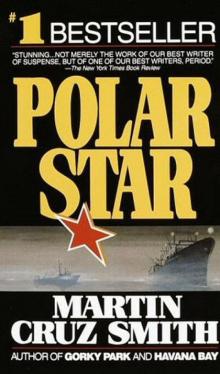 Polar Star
Polar Star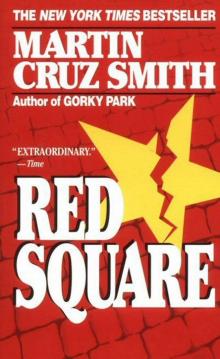 Red Square
Red Square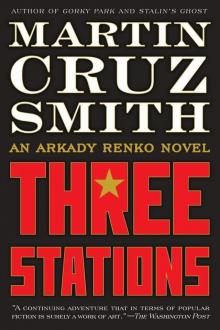 Three Stations
Three Stations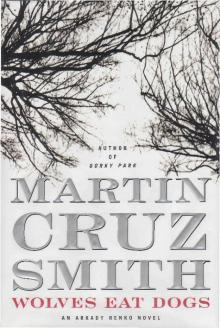 Wolves Eat Dogs
Wolves Eat Dogs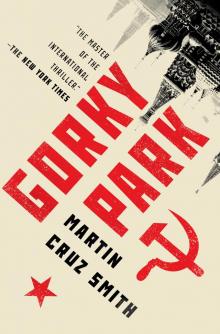 Gorky Park
Gorky Park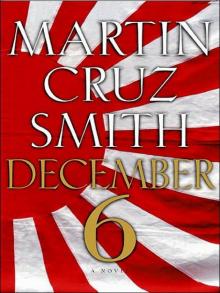 December 6
December 6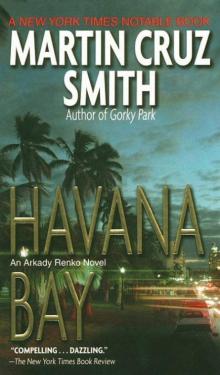 Havana Bay
Havana Bay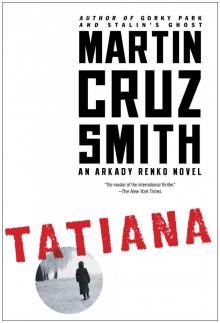 Tatiana
Tatiana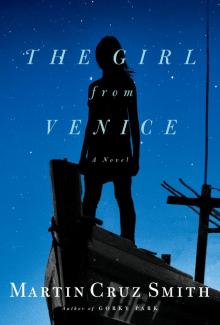 The Girl From Venice
The Girl From Venice Stalin's Ghost
Stalin's Ghost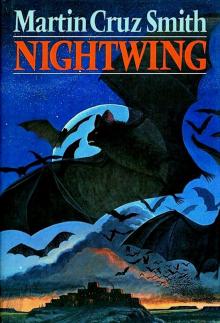 Nightwing
Nightwing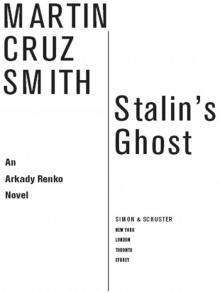 Stalin s Ghost
Stalin s Ghost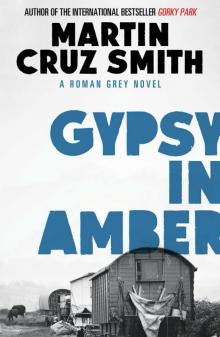 Gypsy in Amber
Gypsy in Amber Rose
Rose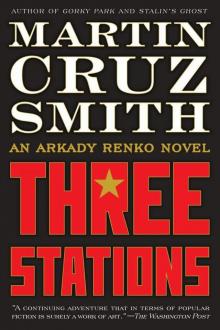 Three Stations: An Arkady Renko Novel
Three Stations: An Arkady Renko Novel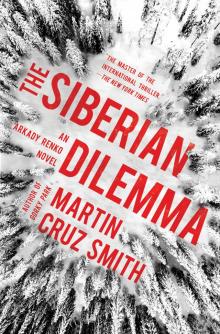 The Siberian Dilemma
The Siberian Dilemma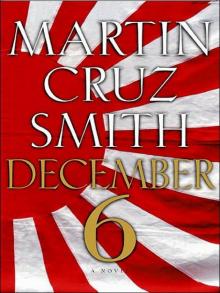 December 6 (V5.0)
December 6 (V5.0)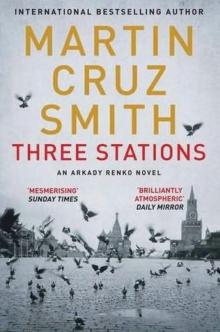 Three Stations ar-7
Three Stations ar-7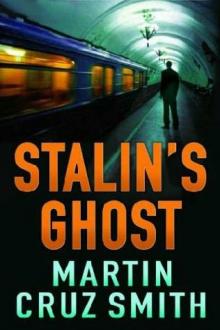 Stalin’s Ghost ar-6
Stalin’s Ghost ar-6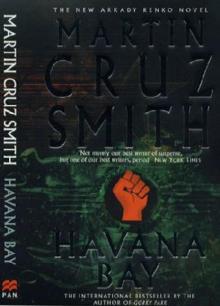 Havana Bay ar-4
Havana Bay ar-4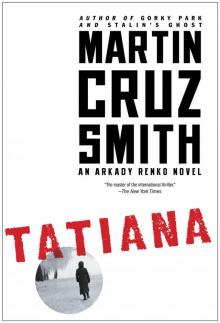 Tatiana ar-8
Tatiana ar-8